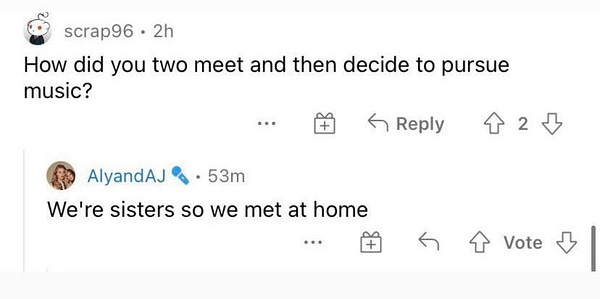11/22: round-up (recs, hacks, etc.)
Happy Monday, folks.
Here’s what I have for you today:
Housekeeping
What I read last week(end)
Submission & revision hacks
Quotations
Tweets
Housekeeping:
The West Review’s Winter issue comes out on December 1st (next week!) and will be the bomb diggity. Read the September issue here.
This issue will include a host of gorgeous poems & art as well as microreviews of new/forthcoming books that the editors enjoyed. I always enjoy talking about books I love, so it’s a fun little addition we’re trying out.
Anyways, buy my books so I can pay writers. US only; shipping’s on me.
Also, this thread ended up being incredibly tender. I love how varied this list is! And how many new-to-me poets there are whose work I need to read ASAP.

What I read last week:
(Well, since I’ve been publishing this every Monday & Friday, it’s really only what I read over the weekend)
EXTRATRANSMISSION, Andrea Abi-Karam (highly recommend!)
A few hacks & insights, courtesy of Poet’s Market 2016:
On first submitting:
Let’s say you’ve collected a list of possible journals and contests based on the tip above. And let’s say you’ve never sent work out for publication before. You can research […] to learn more about how your poetry […] might line up. For example, you’ll want to submit only to journals that say they publish work by emerging as well as established poets. You’ll want to confirm that contest submission fees and guidelines are in alignment with what you’re willing to send and spend. And you may want to make sure your themes, poetic forms, and approach to language are compatible with the publication’s description of what it is seeking. I also suggest learning what you can about the editors or contest judge(s)—and reading their poetry, if possible, so you get a feeling for their personal aesthetic.
-Robert Lee Brewer
& submission hacks:
Since March 1989, copyright notices are no longer required to secure protection, so it’s not necessary to include them on your poetry [submission]. Also, in many editors’ minds, copyright notices signal the work of amateurs who are distrustful and paranoid about having work stolen.
-Robert Lee Brewer
Describe in a sentence or two what you admire about the publication and why you chose to submit your work.
-Robert Lee Brewer
Revision questions:
(abridged list—all courtesy of Robert Lee Brewer)
Have I found something fresh to say about a familiar theme?
What happens in this poem that is fresh, surprising, and different than the information already available on the topic?
Could I trim exposition at the beginning or summary information at the end that is not serving the poem?
Quotations:
We’ve grown to understand “I love you” as a weapon held against our throats.
-Mahogany L. Browne, “On Black Girl Magic”
Such a folktale: being hard to love. What a fable we’ve grown to believe as the rule. […] We are so easy to love.
-Mahogany L. Browne, “On Black Girl Magic”
Tonight the moon is out / on parole—no room, no light / of her own.
-Angie Estes, “Parole”
What do writers mean by hybridity? Perhaps at its most basic, it is code for a zone where genres puncture and conjunct. Or: where genres breathe into one another and “conjunct.” Or: bleed into one another.
I experience the sentence as a field with its own ecologies, atmospheres, textures, hauntings.
I don’t think holiness has anything to do with purity.
Sometimes students, when studying card reading, wonder about meaning. If they memorize the meanings assigned to certain cards, will this help? Sure. Though this is when I say some iteration of, ‘What conditions must be present in order to best position one’s multiple selves in the guts of the flux, all while remaining sentient, multi-conversant […] and able, through a variety of modes and practices, to offer visibility to some poignant patterns?’ […]To me this means participating (reading and writing) from within the membranous precincts between our multiple bodies in the larger rhizomic field of resonances, where much is sounding and is also unsounded. This is the site from which I want to consider narrative. It is what I mean when I say: divinatory poetics.
For most of my life I’ve felt broken, not just tarnished.
What passes for “allyship” is often these easy practices one can adopt to make one feel alongside whoever it is they’re oppressing. Ethical branding. But that’s just it with power, right? One fundamentally isn’t alongside another. One’s position is contingent on the other, one is assuming and profiting off the labor of another. Sure, it’s messy and sometimes more mutual or symmetric, but often it’s very plainly exploitative. When I am on the negative end of that, I more often just need support—real, material support—than aphorisms or posturing. Which is to say a cis person won’t ever read a poem I wrote and have associated themself out of structural transmisogyny. No matter how many tears.
So the question then is how does one support people whose oppression their position is contingent on. To run with the example that applies to myself: how many trans women have you defended from harassment? How many trans women have you provided housing, food, financial support for? How many trans women have you been a friend to? For me, and for most any other trans woman, the answer to these questions is years and years of inter-communal labor and support. We are providing it for each other because no one else will. The ones with the least power in any given situation are likely the ones distributing what little they have to each other. So one way to start to help is to pick up some slack and help undo that hurt. More importantly than always saying the latest correct word or phrase is simply to support us, hire us, house us, pay us.
I know for me, as a genderqueer writer, questioning established forms isn’t a question of transgression or challenging the reader, but of survival. The writing world is as cissexist as anywhere. Rejecting given norms is often a requirement to speak in a language that doesn’t betray us.
To exist as trans is to exist in a state of emergency.
Silence is big in the book, yeah. And so is screaming. I think silence and screaming are two feelings which can come from the same place.
[Erasure is] supremely, physically violent. Even the process of it is—you are using your hand, which is attached to part of your body, to erode another piece of artwork. Even if your intentions are good, even if your positionality and relationship to that artwork is ethical, or as ethical as possible, it is still an act of violence. And often the intentions and positionality that go into that are not good. I can spout of examples of that really easily—Kenneth Goldsmith (*), Vanessa Place, John Gosslee—poets who are so invested in the idea that all art belongs to them as white people that they are disinterested in having, refuse to have any kind of critical conversation about what they are doing. The confidence that they have in what they do is unbelievably terrifying to me.
I'm trying to tap into how to both be present in this political reality that we live in, and also to keep alive and nurture that which makes me feel that life is worth living.
I'm still searching for a better word to describe going beyond surviving.
The day I felt like I took a step over to the side of the room where I might start thinking of myself as a “writer of poetry” was when I finally gave up trying to be the hero of the poem.
Tweets:



That’s all I have for you today. I hope you have a good week!
-DB
Linktr.ee












